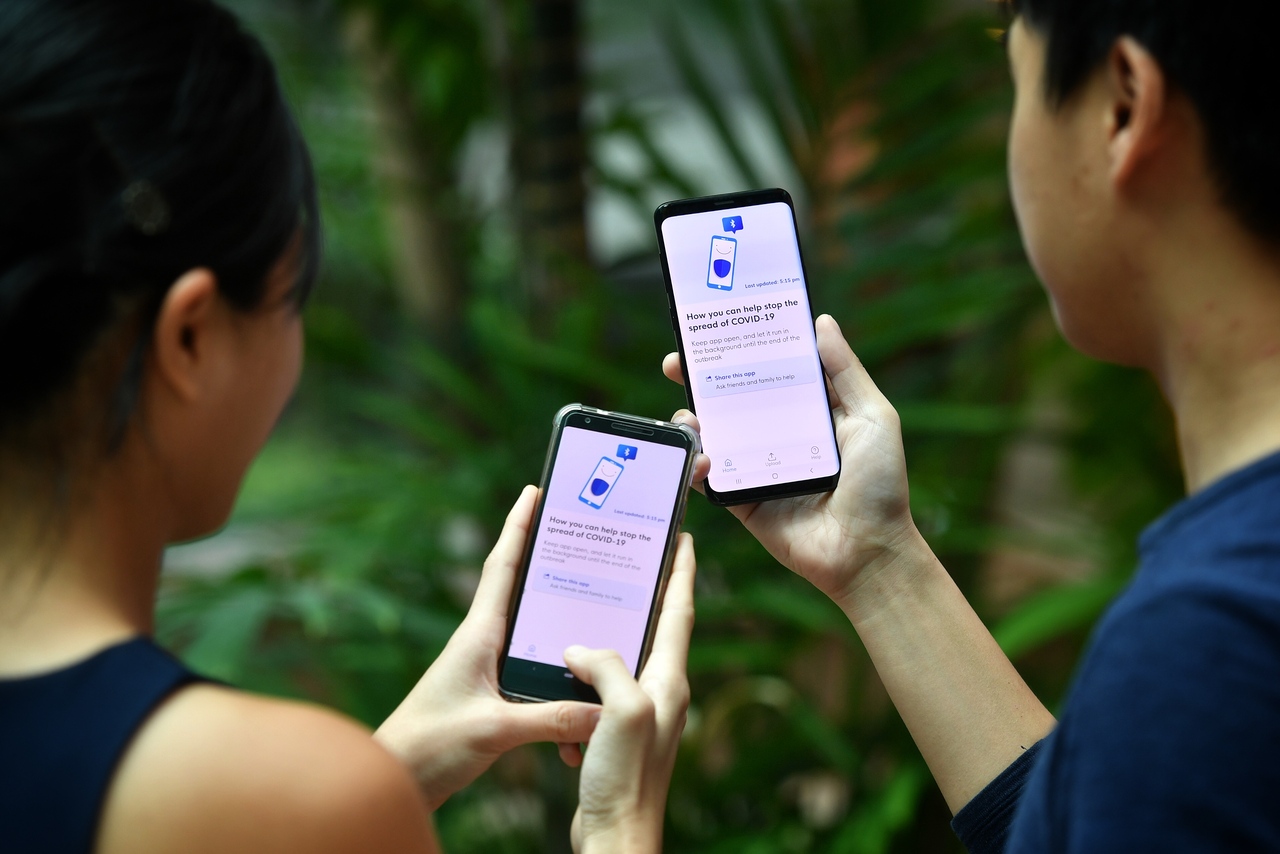Contact-tracing device will not track location; people can use TraceTogether if they prefer, says Vivian Balakrishnan
Sign up now: Get ST's newsletters delivered to your inbox

The device will be able to communicate with contact-tracing app TraceTogether and allow the Government to include as many people as possible to maximise public health.
PHOTO: ST FILE
SINGAPORE - The wearable device for contact tracing in development by the Government to help curb the spread of Covid-19 will not track an individual's location, and those who prefer to use Singapore's contact-tracing app TraceTogether will still be able to do so.
The device, which may be issued to everyone here, will be a small device that people can slip into their bag or pocket, said Minister-in-charge of the Smart Nation Initiative Vivian Balakrishnan.
Dr Balakrishnan gave these updates on Sunday (June 7) in the comments thread of a post on his Facebook page, where he had shared a video of him talking in Parliament on June 5 about the device, which may be issued to everyone here.
The announcement of this device comes after news that TraceTogether, which identifies people in close contact with a coronavirus patient via wireless Bluetooth technology, does not work well with Apple devices.
The app is useful when those infected cannot recall whom they had been in proximity with for an extended period, but it has not been popular here.
Dr Balakrishnan, who is also the Foreign Minister, earlier said that about 1.5 million users have downloaded the TraceTogether app since it was launched in March, which works out to only a quarter of Singapore's population.
This falls short of the optimum number of users needed for the app to work well - which is about three-quarters of the population.
Responding to concerns that Facebook user Justin Herson had about the device being developed, Dr Balakrishnan said it will not be a tracking device and will not track an individual's location.
Just like TraceTogether, the device will use Bluetooth technology to exchange proximity information between devices or between users of the app.
Data in the personal device is encrypted and automatically erased after 25 days. The authorities will access the data in the device only if a person is infected with Covid-19 .
"If and only if that happens, then the data is used by authorised contact tracers to find people who may have inadvertently been infected by you," Dr Balakrishnan added.
In another reply, this time to Facebook user Sylvester Zhuo, Dr Balakrishnan said that the thinking behind the device is that there are still people here without a smartphone, or whose smartphone does not work well with the app.
The device will be able to communicate with TraceTogether and allow the Government to include as many people as possible to maximise public health.
Responding to requests from user Simon Sin to make the device multi-purpose or to be able to replace TransitLink transport cards, credits cards or company entry passes, Dr Balakrishnan said that he is reluctant to do so as the device's battery should last "many months".
After his announcement of the device on June 5, a petition called "Singapore says 'No' to wearable devices for Covid-19 contact tracing" was started by Mr Wilson Low that day.
In three days, the petition, which rejects the development of this contact-tracing device, has been signed by almost 30,000 people.
When asked what spurred him to start the petition, the self-employed man said he noticed that many of his friends on social media had shared concerns about privacy and surveillance, and he wanted to give an avenue for them to have their voices heard.
"I had no idea that it would get so much attention in such a short time. I am surprised at the response it has received," said Mr Low, 37.
On its Facebook page, opposition party Singapore People's Party on Sunday released a statement by assistant secretary-general Ariffin Sha to express its concerns about data that would be collected by these devices, and called for the Government to "tread with utmost caution and regard for the privacy of Singaporeans".
Mr Bryan Tan, a lawyer from Pinsent Masons MPillay specialising in technology law and data protection, said the device will likely overcome the hardware issues currently associated with contact tracing and that the designers will be implementing privacy by design and take it into account even while putting it together, just like how they have done so with TraceTogether.
The app also does not collect or use users' location data, but records only whom they might have been close to, and Mr Tan said the new device will likely function in the same way.
"I do not see a need to change the position of storing physical locations automatically. There could be an opportunity to build in more features, for instance, a SafeEntry link to allow users to enter locations even easier," said Mr Tan, referring to the Government's digital check-in system for contact-tracing purposes.


